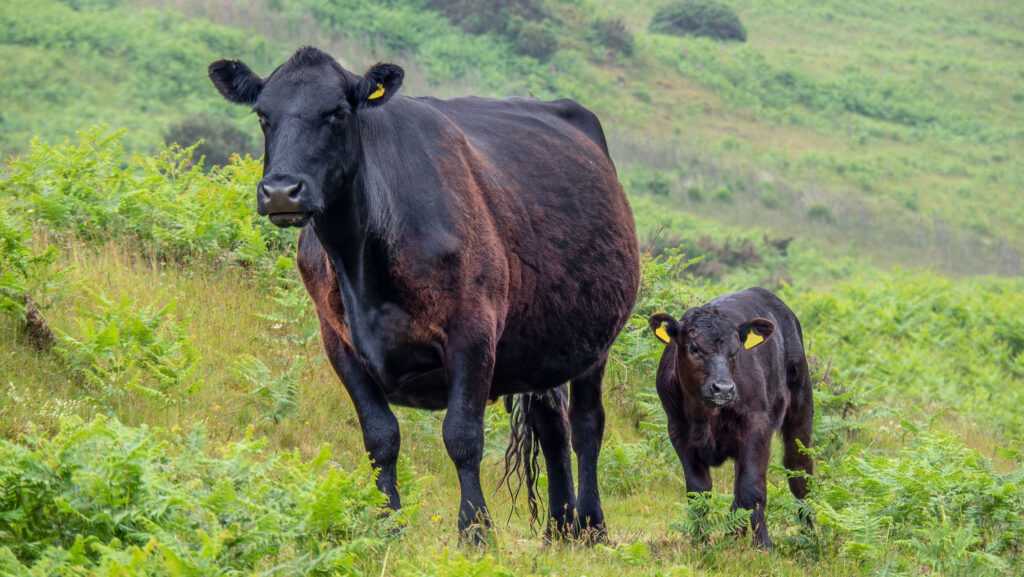Welsh farming groups reject destocking to meet climate goals
 © Adobe Stock
© Adobe Stock Farming organisations have rejected calls by the Climate Change Committee (CCC) that a reduction in livestock numbers and meat consumption is needed for Wales to reduce its greenhouse gas emissions.
The fourth carbon budget for Wales, published on Wednesday 14 May, does not acknowledge the multifaceted benefits of livestock farming to Wales’ environment and biodiversity, says NFU Cymru.
See also: Farmers reject CCC’s call for livestock reduction targets
“It doesn’t truly reflect the detrimental impacts such destocking would have on tens of thousands of jobs connected with farming, the Welsh food and drink sector, our rural communities, culture, landscape and language,” said NFU Cymru president Aled Jones.
National Sheep Association (NSA) chief Phil Stocker added: “They have got this wrong and are simply looking at ways to reduce emissions rather than look at carbon cycles more broadly, and once again are looking at things in silos rather than ‘whole systems’.”
The report highlights that while emissions in Wales have decreased by 37% since 1990, and the first carbon budget (2016-2020) was achieved, emissions are now dominated by agriculture, electricity supply, and surface transport.
Reducing livestock numbers, moving diets away from animal produce and planting more trees were top actions the CCC said Wales must take now.
“To deliver against this budget and its climate commitments, immediate action is necessary.
“Wales must decarbonise its economy and transition to one that doesn’t rely on foreign fossil fuels,” said CCC interim chair Professor Piers Forster.
Negative impacts
However, NFU Cymru warned against such moves, which it says could have far-reaching negative impacts.
“The report makes reference to Port Talbot steelworks and the mistakes that were made – and the negative economic and social impacts suffered – in the transition to an electric furnace,” said Mr Jones.
“NFU Cymru is clear that lessons must be learned, and climate targets should not result in the loss of another iconic industry in Wales.”
The Nature Friendly Farming Network Cymru (NFFN) added farmers are at the forefront of climate solutions, and trailblazing nature-friendly farmers across Wales are already leading the way.
However, Wales must adapt to secure a strong, viable future for Welsh farming, NFFN said.
“Support for integrating nature-friendly solutions alongside food production and diversifying income streams will be crucial,” said Rhys Evans, NFFN Cymru manager.
He added that grazing animals can contribute to the required outcomes, but their role must be understood in a broader, more holistic context.
Emissions
Combined emissions in the agriculture and land use sectors were 4.7m tonnes carbon dioxide equivalent (CO2e) in 2022, some 17% lower than 1990, when emissions totalled 5.7m tonnes CO2e.
The report highlighted in 2022, agriculture was the third highest emitting sector in Wales, accounting for 16% of emissions, though it has decreased by 8% from 6.1m tonnes CO2e in 1990 to 5.6m tonnes CO2e in 2022.
Livestock emissions from enteric and waste and manure management declined by 5% to 4.5m tonnes CO2e, which the CCC said could be because of a decrease in cattle and sheep numbers respectively over the period.
Recommendations
The Welsh government, it recommended, will need to provide long-term certainty on public funding for farming practices and technologies to reduce emissions from managing crops and livestock.
The CCC added incentives and markets should be provided for farmers and land managers to diversify their incomes for actions, including woodland creation, peatland restoration, and renewable energy as they move away from livestock farming.
Emissions could also be reduced through low-carbon farming practices, including the use of feed additives to inhibit methane production in cattle, the CCC suggested.
“I agree fully that climate and environmental improvement measures are essential, but reducing sheep numbers has much wider economic, social, and environmental impacts, and risk simply offshoring environmental footprints,” said Mr Stocker.
He added more focus should be placed on further enhancing the farmed environment through sequestration opportunities – pasture and soil management, hedgerows and shrubs and trees.
A shift in diet
To further make strides in reducing emissions, the CCC said the Welsh government needs to support a shift from meat and dairy consumption towards lower carbon foods.
AHDB’s head of environment Rachael Madeley-Davies disagrees: “A sustainable food system doesn’t necessarily require less dairy, but a focus on improving the sustainability of its production.”
The key was not to overproduce or underproduce, she said, but to optimise production for both environmental health and global food security, ensuring livestock farming remains sustainable without compromising the planet’s future or the health of populations worldwide.
